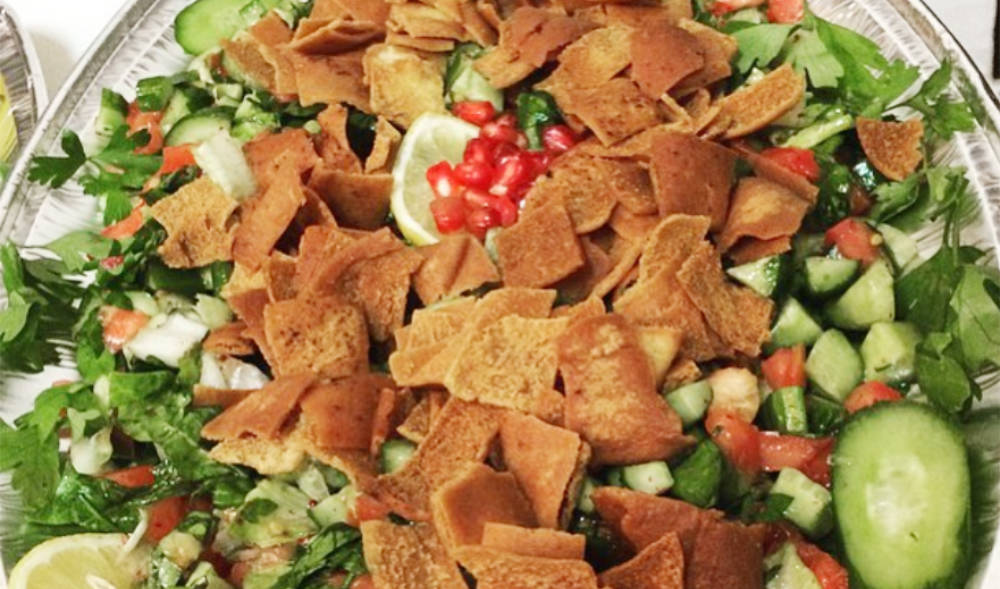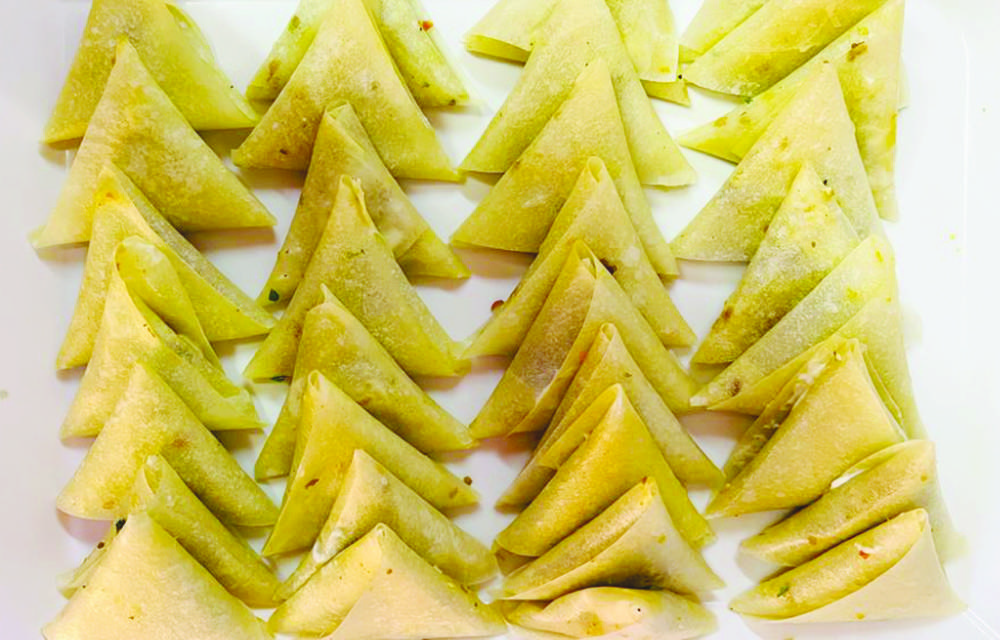Ramadan Recipes: Beef, cheese pull-apart buns

RIYADH: Ramadan iftars in Saudi Arabia are no longer limited to traditional food and drinks and are expanding to include cuisines from all over the world.
While one cook from a home-based business said that high demand for global meals forced her to perfect their preparation, another believed that preparing these dishes helped people to recognize the cultures of diverse communities.

Haifa Thayed, a cook from a home-based business in Khafji, told Arab News: “Pizza is my favorite food. It is one of the (most) important dishes that I am looking forward to eating at Ramadan iftar. It is a must during Ramadan, whether the pizza is round, triangle-shaped, or shaped like a small circle.
“There are non-traditional dishes which I’m perfect at preparing, especially adjaruli, a Georgian dish I learned to prepare while working with my nephew who runs a travel company in Tbilisi.”
When I was in the United States studying I lived with a Japanese roommate for over two years and she taught me everything I needed to know about the culture and the food. A lot of seafood I associate with the summertime.
Najd Alruwaili, Resident of Riyadh
The dish is made of dough in the shape of an oval. It is hollow in the middle and has various cheese toppings, including salty cheese. It is baked until the dough resembles a pie.
She said that, after the adjaruli was thoroughly cooked, egg yolk and a piece of butter could also be placed on top of the cheese in the center.

This dish is eaten by taking a piece of the pie and mixing the cheese with raw egg yolk. But it is not suitable for a suhoor because it is salty and makes one thirsty while fasting.
So her favorite suhoor dish is pasta with vegetables and mushrooms, vegetables and chicken, or chicken caesar salad because it is a rich dish that fills her up.
Thayed mastered many dishes while studying in the US city of San Diego several years ago, including apple pie, broast chicken, and quesadillas.
“Each dish has a distinct flavor that differs from our traditional dishes. My family adores the way I prepare these dishes and always requests that I prepare these dishes for them. I’ve gotten more inventive with my preparation methods.”
Normally, Norah Hamid prefers tacos, burgers, and cookies. But, during Ramadan, she prefers spaghetti, Lebanese kibbeh, and Indian biryani. She also makes brownies every now and then.

Madinah native Abdullah Alradadi, 23, said the Saudi dish of kabsa was a major part of the Ramadan food that he and his friends ate during the month of fasting. But Italian was his go-to cuisine when not eating traditional food.
“My favorite international foods to eat during the month of Ramadan are pizza and pasta. They are very easy and quick to make for suhoor. I initially learned how to make these dishes in Riyadh. There were so many international restaurants opening up so I fell in love with the dishes and learned how to make them.”
With so many international restaurants opening up and expanding across the Kingdom, Saudis are incorporating diverse cuisines into their daily dining.
“I know that pizza and pasta, especially fettuccine Alfredo, are very popular dishes in Italy,” he said.
Hamid has learned how to make Chinese-style noodles. A four-person meal requires a sliced large onion, two cubed chicken breasts, carrots, chopped garlic and ginger, soy sauce, noodles, and bell peppers.

She cooks the noodles for 10 minutes, or according to the package instructions. The chicken is cooked in another pan, removed once it is done, and she adds the onion, garlic, ginger, butter, and tomato paste.
The remaining ingredients are then added, along with a mixture of starch and cold water to thicken.
“After that, add the boiled pasta and a dash of soy sauce. Allow to cook for 10 minutes.”
Her favorite suhoor meal is biryani, and her favorite iftar meal is Egyptian koshary. She tried koshary for the first time after an Egyptian friend recommended it to her, and she had her first taste of biryani at an Indian restaurant. She learned how to cook these meals by practicing and watching videos online.
Those who live in Riyadh describe her preparation of international dishes as very good, and she believes that preparing them allows her to learn about the cultures of various communities around the world.
Najd Alruwaili, who is 27 and lives in Riyadh, said she was initially exposed to international cuisines when she was completing her studies abroad.
“When I was in the United States studying I lived with a Japanese roommate for over two years and she taught me everything I needed to know about the culture and the food,” Alruwaili said. “My cravings have no seasons.”
During the month of Ramadan, as the weather begins to get hotter and the summer approaches, Alruwaili begins to crave seafood.
“A lot of seafood I associate with the summertime. During this time I crave sushi and seafood over traditional dishes. I became very eager to eat Japanese food and I became a fan of it.”
Source: arabnews.com

